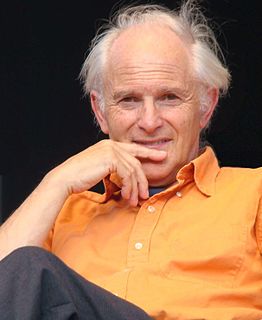A Quote by Wentworth Dillon, 4th Earl of Roscommon
Those things which now seem frivolous and slight,
Will be of serious consequence to you,
When they have made you once ridiculous.
Related Quotes
Even the Atheists... readily acknowledge it for an indubitable truth, that there must be something... which was never made or produced - and which therefore is the cause of those other things that are made, something... whose existence must needs be necessary... Wherefore all the question now is, what is this... self-existent thing, which is the cause of all other things that are made.
Jargon is the verbal sleight of hand that makes the old hat seem newly fashionable; it gives an air of novelty and specious profundity to ideas that, if stated directly, would seem superficial, stale, frivolous, or false. The line between serious and spurious scholarship is an easy one to blur, with jargon on your side.
It would indeed be a great delusion, if we stated that those sports of Nature [we find] enclosed in rocks are there by chance or by some vague creative power. Ah, that would be superficial indeed! In reality, those shells, which once were alive in water and are now dead and decomposed, were made thus by time not Nature; and what we now find as very hard, figured stone, was once soft mud and which received the impression of the shape of a shell, as I have frequently demonstrated.
So many things which once had distressed or revolted him — the speeches and pronouncements of the learned, their assertions and their prohibitions, their refusal to allow the universe to move — all seemed to him now merely ridiculous, non-existent, compared with the majestic reality, the flood of energy, which now revealed itself to him: omnipresent, unalterable in its truth, relentless in its development, untouchable in its serenity, maternal and unfailing in its protectiveness.
I love seeing somebody act real earnest and serious, like Jackie Gleason. He makes me laugh because he reflects back to me my own serious-mindedness and how ridiculous it all is. It's always easier to see somebody else in that position than yourself, and you laugh. It's like the classic slipping on the banana peel, or someone getting hit by a pie in the face. Why do those things make us laugh? Is it from relief, like: Thank God it wasn't me? Or is it something else: I'm being very serious now. I'm pontificating earnestly and solemnly about-POW! PIE IN THE FACE! The bust-up of certainty.
I, like almost all chemists I know, was also attracted by the smells and bangs that endowed chemistry with that slight but charismatic element of danger which is now banned from the classroom. I agree with those of us who feel that the wimpish chemistry training that schools are now forced to adopt is one possible reason that chemistry is no longer attracting as many talented and adventurous youngsters as it once did. If the decline in hands-on science education is not redressed, I doubt that we shall survive the 21st century.



































